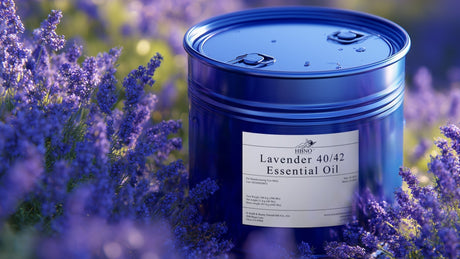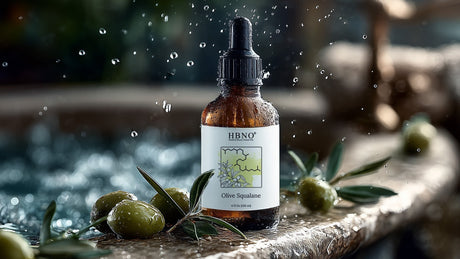Tea tree Essential Oil, extracted from the leaves of the Australian tea tree (Melaleuca alternifolia), may be renowned for its powerful antibacterial and anti-inflammatory properties. When added to toothpaste, it may offer a natural approach to improving oral hygiene and addressing common dental concerns.
In this blog, we'll highlight the key benefits of tea tree oil toothpaste, examine its safety for daily use, and share the best ways to include it in your dental care routine.

Benefits of Tea Tree Oil in Toothpaste
1. Bacterial Defense
Tea tree oil is prized for its antibacterial properties, particularly due to terpinen-4-ol, which may help inhibit harmful oral bacteria linked to plaque and tooth decay. By reducing bacterial load, it may lower the risk of cavities, prevent bad breath, and potentially support a healthier oral microbiome.
2. Anti-Inflammatory Properties
Research suggests tea tree oil's anti-inflammatory compound, alpha-terpineol, may help with inflamed gums. Regular use of tea tree oil toothpaste may improve overall gum health.
3. Natural Teeth Whitening
Tea tree oil may help naturally brighten teeth by gently reducing stains from coffee, tea, and food without harsh chemicals. Studies also suggest it may help prevent plaque buildup, which contributes to discoloration, leading to a visibly whiter smile over time.
4. Plaque and Tartar Control
Tea tree oil may help prevent plaque and tartar by inhibiting bacteria that cause buildup. This supports cleaner teeth, reduces tartar formation, and promotes long-term oral health.
5. Reduced Risk of Bleeding Gums
Tea tree oil's anti-inflammatory properties may help reduce bleeding gums and support healing. Studies suggest using tea tree oil toothpaste may ease gum discomfort, strengthen tissue, and lower the risk of advanced gum disease.
6. Combating Oral Thrush
Tea tree oil's antifungal properties may help treat oral thrush, a Candida infection marked by white patches in the mouth, offering a natural way to restore oral health and comfort.

Tea Tree Oil Toothpaste vs. Regular Toothpaste: A Simple Comparison
As natural products continue to rise in popularity, tea tree oil toothpaste has emerged as an alternative to traditional options. But how does it really compare to regular toothpaste?
Ingredient Focus
Tea tree oil toothpaste is often plant-based and free from synthetic additives like artificial sweeteners or foaming agents. Regular toothpaste typically includes ingredients such as fluoride, SLS (sodium lauryl sulfate), and strong flavorings designed for mass-market appeal.
Feel and Flavor
Tea tree oil toothpaste offers a more herbal, cooling sensation with a subtle flavor. Regular toothpaste is usually bolder, with classic mint profiles and a foamy texture that many associate with a "clean" feeling.
Natural vs. Mainstream
Those who prefer a minimalist or eco-conscious lifestyle may lean toward tea tree oil toothpaste for its simplicity and nature-inspired ingredients. Regular toothpaste, on the other hand, is the conventional choice, widely available and familiar to most users.
Everyday Use
While both serve the same purpose-cleaning your teeth-the experience is different. Tea tree oil toothpaste offers a gentler, more natural routine. Regular toothpaste provides a tried-and-true formula with a more intense taste and texture.

How to Incorporate Tea Tree Oil into Your Oral Care Routine
To maximize the benefits of tea tree oil toothpaste for Oral Health
1. Brush Twice Daily
Use tea tree oil toothpaste every morning and evening to maintain optimal oral hygiene.
2. Complement with Mouthwash
Pair your toothpaste with a tea tree oil-infused mouthwash for a complete antibacterial effect.
3. Floss Regularly
Flossing helps remove debris and bacteria between teeth, complementing the effects of tea tree oil toothpaste
4. Replace Your Toothbrush
Change your toothbrush every three months or sooner if the bristles become frayed. A good toothbrush enhances the effectiveness of your toothpaste.

Safety Considerations for Tea Tree Oil Toothpaste
While tea tree oil toothpaste offers numerous benefits, it's essential to use it correctly to ensure safety and effectiveness.
1. Dilution Matters
Pure tea tree oil is highly concentrated and can be harsh on sensitive tissues. Toothpastes containing tea tree oil toothpaste are formulated with safe concentrations to avoid irritation while providing maximum benefits.
2. Avoid Swallowing
Tea tree oil should not be ingested. When using tea tree oil toothpaste ensure you rinse your mouth thoroughly to avoid accidental ingestion.
3. Allergic Reactions
Although tea tree oil is generally well-tolerated, some individuals may experience allergic reactions. If you notice redness, swelling, or irritation after using tea tree oil toothpaste discontinues use and consult a dentist or healthcare provider.
4. Consult a Professional
If you are pregnant, nursing, or have pre-existing dental conditions, consult a dentist or healthcare provider before incorporating tea tree oil toothpaste into your routine.
Conclusion
Tea tree oil toothpaste offers a natural solution for enhancing oral health by fighting bacteria, reducing inflammation, and promoting gum health. It's an ideal choice for those seeking to elevate their dental care routine with a powerful, plant-based ingredient.
Ready to experience the benefits of Tea Tree Oil? Incorporate tea tree oil toothpaste into your routine or source pure Tea Tree Essential Oil wholesale from HBNO Bulk for your business. Start your journey to healthier teeth and gums today! Create exceptional products with experienced Private Label Supplier focused on consistency and quality.
Citations:



